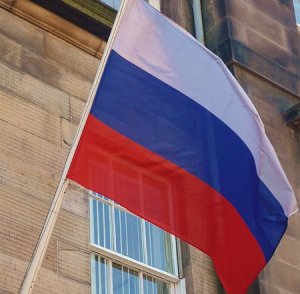Russian Courts Expand Illegal Content Ban to Include Online Gambling

 Playing online poker in Russia has gotten tougher with the passage of new laws and a decision from the country’s top judicial branch.
Playing online poker in Russia has gotten tougher with the passage of new laws and a decision from the country’s top judicial branch.
Earlier this month, the Russian Supreme Court heard a case regarding an Internet Service Provider (ISP) called Rostelecomsurrounding the previous ruling that the company did not have to block online gambling sites. In previous rulings, the legal system in Russia had determined that although online gambling and poker were illegal, it wasn’t up to the service provider to restrict access to them. The Russian Supreme Court, however, overturned that decision, strengthening the laws on web content in the country.
According to TechDirt and writer Mike Masnick, the ruling states that ISPs need to proactively block Russian citizens’ access to “illegal content” or they could lose their license. Masnick broached the subject with the law firm Baker & McKenzie, a U.S. outfit, which summarized what the decision by the Russian Supreme Court means for online poker players in the country.
“The Supreme Court ruled that it is unlawful to disseminate information that is restricted in accordance with Russian law including, but not limited to, gambling,” the Baker & McKenzie summary stated. In summary, Russian ISPs must now block sites that violate Russian law, lest they lose their license.
At the beginning of the 21st century, Russia was one of the burgeoning poker communities in the world. That ended in 2009, however, when the Russian government introduced new laws that basically banned all gaming, both live and online. In July 2009, several casinos were closed down overnight and a ban on online gambling was also instituted.
 Although there were four “gambling zones” established in the country in remote locations such as the Altai Territory, Primorye, the Kaliningrad Region, and the Rostov and the Krasnodar Territory, as of today, there has been no action to build any casinos.
Although there were four “gambling zones” established in the country in remote locations such as the Altai Territory, Primorye, the Kaliningrad Region, and the Rostov and the Krasnodar Territory, as of today, there has been no action to build any casinos.
With the casino ban in place, Russian poker players were basically pushed into an “underground” status if they wanted to play live. Although online poker was also part of the ban, the Russian government did not actively enforce the laws regarding the industry until the recent decision from Russia’s ultimate legal authority. The decision by the Supreme Court looks to have a far-reaching effect not only on online poker in the country, but also on several other segments of the Russian community.
Masnick wrote on TechDirt, “(The decision by the Russian Supreme Court) is a startling and dangerous finding. There’s a world of difference between merely being a conduit to information and actually putting forth that information yourself… Apparently, the Russian Supreme Court has no concept of secondary liability and has squashed it all down into primary liability.”
Masnick believes that the ruling will crush Russia’s internet industry, as companies will block many sites rather than risk losing their license by providing access to what the government believes is “illegal content.”
 In the 2012 PokerStars World Championship of Online Poker (WCOOP), Russia’s maratik took down the title and a $1 million payday after winning the Main Event, and the country as a whole earned 1,752 cashes during the run of the series, second only to Canada. In total, 14,786 Russians took part in the 2012 WCOOP, once again only second to Canada.
In the 2012 PokerStars World Championship of Online Poker (WCOOP), Russia’s maratik took down the title and a $1 million payday after winning the Main Event, and the country as a whole earned 1,752 cashes during the run of the series, second only to Canada. In total, 14,786 Russians took part in the 2012 WCOOP, once again only second to Canada.
Russia has also produced some noteworthy players who have found success on the poker circuit. Such players as Ivan Demidov, Alexander Kravchenko, Vitaly Lunkin, Max Lykov, and Konstantin Puchkov have come from the nation, but with a further shutdown of online poker in the country, new Russian faces on the international poker scene may be harder to find.
Talk about the news in PocketFives’ Russia poker community.
Want the latest poker headlines and interviews? Follow PocketFives on Twitterand Like PocketFives on Facebook. Youcan also subscribe to our RSS feed.




